
Job interviews, am I right? They’re already this swirling vortex of stress, where you’re trying your absolute best to put your most polished foot forward, recall every single achievement, and somehow also appear effortlessly charming. It’s like a high-stakes performance where the spotlight is blinding, and you’re constantly second-guessing every move.
But what if I told you that sometimes, the performance starts even before you think it does? Or that some bosses have these wild, secret tests designed to trip you up when you least expect it? Forget having a killer resume or years of experience; sometimes, all it takes is a single, unexpected moment to make or break your entire job application. It’s enough to make you wonder if you’re ever truly safe from scrutiny.
We’ve all heard those whispers about unwritten rules or quirky hiring tactics, but some of these stories are truly next-level. From baffling behavior to outright bizarre demands, we’ve gathered some of the most unbelievable job interview moments – especially those that ended a candidate’s chances in the blink of an eye. Get ready, because these tales might just change the way you think about making a first impression, or even how you treat the next person you meet.

1. **The Infamous Receptionist Trick**
Okay, let’s kick things off with the story that truly embodies the idea of blowing an interview in the first five minutes. Imagine walking into a building, feeling that familiar mix of nerves and excitement, ready to nail your big interview. You greet the receptionist, maybe you barely make eye contact, or you’re just a little dismissive, focused on the main event. What you don’t realize is that your ‘main event’ just finished, and you failed it spectacularly.
This exact scenario unfolded for one job candidate, whose story made its way onto Reddit’s r/ProLifeTips forum. The original poster (OP) shared how a man walked in, was greeted by the ‘receptionist,’ and barely made eye contact, showing no interest in engaging in conversation. The catch? The ‘receptionist’ was actually the hiring manager, filling in to observe how candidates treated someone they perceived as ‘beneath’ them. It was a secret test of character, and this candidate blew it within minutes.
When called into the conference room, he was informed that his interaction with the ‘receptionist’ showed he wasn’t a good fit, because “every single person on our team is valuable and worthy of respect.” The OP noted that his personality completely changed when he realized he was speaking to the decision-maker, becoming “friendly, open, relaxed,” which only further solidified the hiring manager’s decision that he was ‘openly rude and treated her like she was beneath him.’ It’s a powerful, albeit harsh, reminder that respect should be given to everyone, regardless of their perceived title.
2. **The Sneaky Salt and Pepper Test**
Speaking of secret tests, prepare yourself for this one, because it might just make you rethink your dining habits during a casual lunch interview. A Reddit user revealed that one of his old bosses had a truly baffling ‘salt and pepper’ test he’d spring on unsuspecting candidates without their knowledge. The rule? If you were out for a lunch interview, and you dared to reach for the salt, pepper, or hot sauce *before* trying your food, you immediately failed.
Yes, you read that right. It didn’t matter if you knew you liked your dish with an extra dash of pepper or a kick of spice; if you added it before tasting, you were out. The boss apparently believed this bizarre ritual helped show a person’s true character, though the Reddit user admitted they had “Not a clue how he came to that conclusion.” It’s one of those arbitrary rules that makes you scratch your head and wonder about the logic behind some hiring decisions. It certainly makes you paranoid about every single move, doesn’t it?
This test highlights the sometimes nonsensical hoops candidates are expected to jump through, often without any warning. It’s a stark contrast to evaluating actual skills or experience, focusing instead on a completely unrelated, and frankly, ridiculous, habit. The Reddit user themselves confessed they’d definitely fail this one, given their love for pepper. It makes you realize how easily you could unwittingly torpedo your chances for a job, simply by being yourself.

3. **The Simple Yet Profound Coffee Cup Test**
While some tests might seem designed to trap you, others are rooted in a clear philosophy of company culture. Enter the ‘coffee cup’ test, revealed by businessman Trent Innes, former managing director of accounting platform Xero. In an appearance on the business podcast “The Ventures,” Innes shared his secret trick for determining if an applicant was the right fit: he’d always offer them a drink from the kitchen, and then observe if they offered to take the empty cup back at the end of the interview.
Innes explained his reasoning: “You can develop skills, you can gain knowledge and experience but it really does come down to attitude, and the attitude that we talk a lot about is the concept of ‘wash your own coffee cup.’” For him, this simple act wasn’t just about cleanliness; it symbolized a sense of ownership and a willingness to contribute to the collective environment, regardless of one’s role. It’s about being part of a team where everyone pitches in, fostering a culture of mutual responsibility.
He stated that this test helps him get a good impression of who someone is as an employee, looking for the “lowest level task… that would actually really drive a culture of ownership.” While only about 5 to 10 percent of interviewees fail this test, the offer to return the cup—even if Innes ends up taking it himself—is the crucial part. It’s a smart way to gauge attitude and cultural fit without resorting to odd or confusing questions, focusing on genuine initiative and a growth mindset that’s essential in a fast-growing environment.
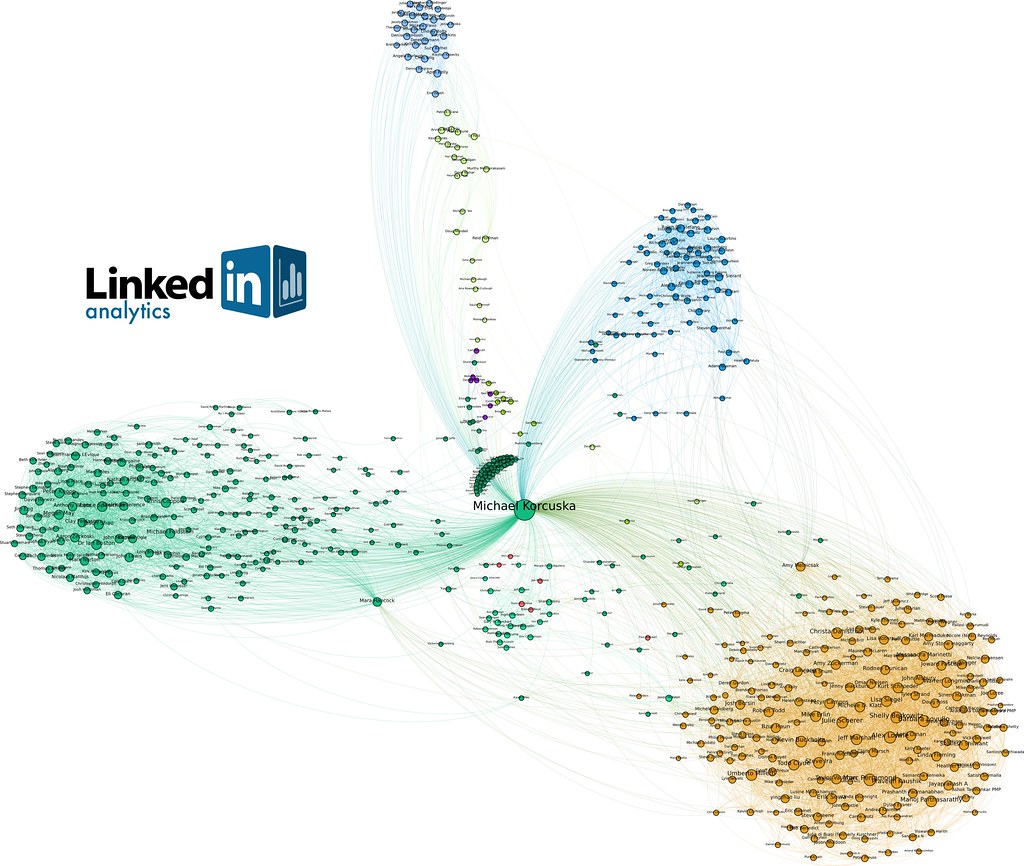
4. **The Application Instruction Test**
Beyond in-person interactions, the interview process often begins long before you set foot in the building. And some savvy hiring managers are using the application itself as a subtle, yet effective, character test. Author and money columnist Victoria Devine shared her own tactic on her podcast “She’s On The Money” for shortlisting applicants: she embeds specific instructions within her job descriptions.
For example, midway through the ‘About You’ section on a LinkedIn advertisement, she’ll include a line like, “You understand that to apply for this job, you have to use the email that’s at the bottom of this advertisement and address it to Victoria, and send an email directly including a cover letter.” If an applicant applies directly on LinkedIn without following these very specific directions, she simply doesn’t even look at their application. It’s a straightforward, no-nonsense way to immediately filter out candidates who lack attention to detail or simply don’t read instructions carefully.
Devine acknowledged that it might seem like an “entitled way to recruit,” but for her, especially in media where they receive a high volume of applicants, it’s an incredibly efficient way to cut down the pool. It’s a powerful lesson for job seekers: always, always read every single line of a job description. The smallest detail you overlook could be the very test designed to weed you out, proving that sometimes, the simplest instructions reveal the most about your diligence and fit.

5. **The Mysterious Car-Lock Award**
Interviews can be unpredictable, but some candidates take that unpredictability to a whole new level. Neil B., an interviewer, recounted one of the most baffling no-shows he’s ever experienced. He was in the middle of interviewing a candidate when she suddenly announced she had forgotten to lock her car and asked for permission to go check on it. Neil, naturally, said yes, assuming she’d be back in a few minutes.
But she didn’t come back. She just left. And not only did she never return, but she also stopped answering his calls. Poof! Gone. It’s one thing to have a candidate be a no-show from the start, but to literally vanish mid-interview is a special kind of bizarre. It leaves you wondering what exactly happened – did she genuinely forget her car, get spooked by the interview, or was there some other, stranger reason for her disappearing act?
This incident, though humorous in retrospect, highlights the frustration interviewers face when candidates display unprofessional or incredibly peculiar behavior. It’s a stark reminder that while interviews are nerve-wracking for job seekers, recruiters also deal with their fair share of odd occurrences that defy explanation. It certainly makes for a memorable story, even if it doesn’t result in a hire!

6. **The Awkward Chuckles Award**
Interview questions can sometimes feel repetitive, but there’s an expectation that candidates will, at the very least, take them seriously. Catherine C., an interviewer, learned this the hard way when she posed the classic question: “Why do you think we should hire you?” It’s a fundamental inquiry, designed to gauge a candidate’s self-awareness, their understanding of the role, and their unique value proposition. What she got in response was… unexpected.
Instead of a well-thought-out answer or even a hesitant attempt, the candidate simply let out “a loud throaty laugh.” Just a laugh. No follow-up, no explanation, no attempt to pivot into a serious response. Can you imagine the sheer awkwardness of that moment? You’re sitting there, pen poised, expecting to hear about skills, experience, and passion, and all you get is a bizarre, uncontrolled chuckle. It certainly doesn’t inspire confidence or suggest that the candidate is truly invested in the role.
This kind of reaction leaves an interviewer completely stumped, as it offers absolutely no insight into the candidate’s capabilities or their suitability for the job. It’s a prime example of how even simple, common questions can lead to truly baffling responses that instantly signal a mismatch, leaving everyone involved wondering what just happened. Definitely not the impression you want to make when vying for a new role.

7. **The Unforgettable Family Award**
Now, for a story that truly stretches the boundaries of professional conduct in an interview setting. Stéphane V. shared an astonishing experience while interviewing a 22- or 23-year-old student for an internship. While parental support is wonderful, there’s a line, and this candidate not only showed up with his mother but also insisted that she accompany him *during* the interview itself. Yes, you read that right: a grown man, seeking a professional internship, wanted his mom to sit in on his job interview.
This immediately raises questions about independence, maturity, and understanding of professional norms. An internship is often a first step into the working world, a chance for young people to demonstrate their ability to navigate professional environments autonomously. Having a parent present, and demanding their participation completely undermines that impression. It’s hard to imagine how one could adequately assess a candidate’s problem-solving skills or ability to work independently when their mother is right there, potentially influencing their responses or offering unsolicited input.
This incident highlights the sometimes wide gap between academic environments and professional expectations, and the importance of demonstrating self-reliance. While it’s certainly a heartwarming example of parental dedication, it’s also a stark illustration of what *not* to do if you want to be taken seriously as a professional. It’s a moment that surely left the interviewer bewildered and the candidate’s chances for the internship virtually nil.
We’ve explored how a blink-and-you-miss-it mistake can derail your job prospects, thanks to some truly wild secret tests and first impressions gone wrong. But here’s the thing: the interview process isn’t just about whether you’re good enough for them. Sometimes, it’s about whether *they’re* good enough for *you*. Because let’s be real, while we’re all trying to put our most polished foot forward, there are some hiring teams out there whose practices are so out there, they make you want to sprint in the opposite direction.
Get ready to hear some truly unbelievable tales from the other side of the interview table – stories where candidates walked into what they thought was a normal interview, only to find themselves facing bizarre questions, outright unprofessionalism, or even flat-out scams. These aren’t just funny anecdotes; they’re vital lessons in spotting red flags about potential employers and knowing when it’s absolutely okay to say “thanks, but no thanks.” After all, finding the right job isn’t just about getting hired, it’s about finding a place where you’re respected, valued, and not asked if you believe in love at first sight. Buckle up, because these next few stories will have you raising an eyebrow and possibly sending a mental high-five to the candidates who wisely turned and ran.
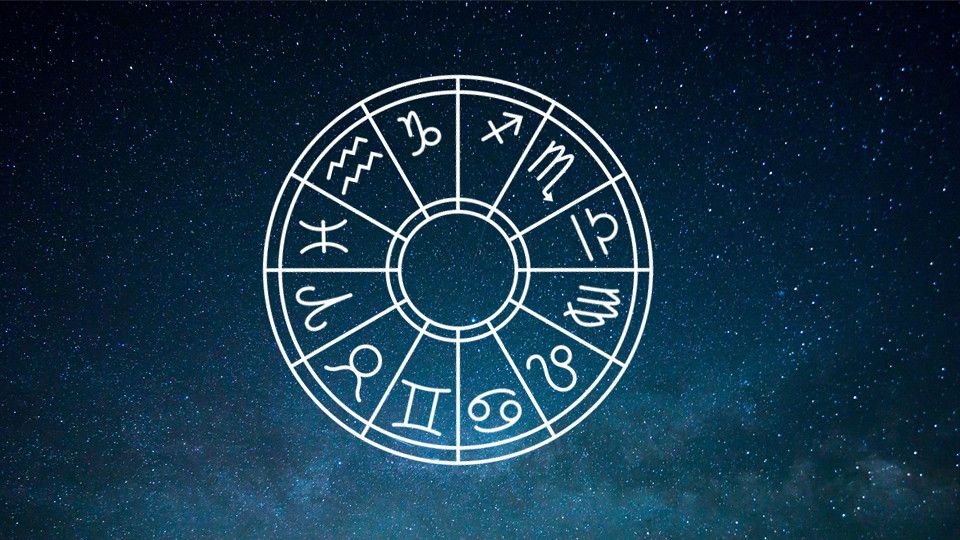
8. **The Zodiac Award**
Imagine you’re sitting there, heart pounding, ready to talk about your skills, your experience, your passion for the role, and then… You get asked for your star sign. Yes, you read that right. Lilian B. found herself in this exact baffling situation. When she hesitantly revealed her zodiac sign, the interviewer’s only comment was that his son shared the same one. Cue the awkward silence.
This isn’t just a quirky icebreaker; it’s a massive red flag. Evaluating candidates based on their astrological sign is not just unscientific; it’s unprofessional and deeply discriminatory. It tells you that the hiring team might not be focused on actual qualifications, skills, or even cultural fit, but rather on some arbitrary, unvalidated criteria. It makes you wonder what other nonsensical rules they might have in place once you actually get the job.
Lilian’s story is a stark reminder that while companies might claim to be innovative, some of their methods are just plain bizarre. It underscores the importance of a well-validated assessment process that actually measures what matters for the job. If your star sign is more important than your resume, it’s probably time to re-evaluate if this is the right constellation for your career.

9. **The Email Confusion Award**
Picture this: you’ve just finished a seemingly productive interview for a flight attendant role at an airline, feeling pretty good about how it went. An hour later, you check your phone, which vibrated unnoticed in your pocket during the interview, only to discover a rejection email from the very same company. Anthony K. lived this bewildering experience. He called them, hoping it was a mistake, but it wasn’t – he’d been rejected *before* his interview even ended. They couldn’t even explain why they bothered to interview him.
This isn’t just a minor communication breakdown; it’s a massive failure in internal coordination and a blatant display of disrespect for a candidate’s time. It speaks volumes about the disorganization within the hiring team and, by extension, potentially the company itself. It suggests a lack of regard for individuals and a process so disjointed that candidates are being evaluated and dismissed even as they’re actively engaging in the process.
Anthony’s story is a painful lesson in why clear and timely communication is vital for any company that wants to maintain a positive brand image. For candidates, it’s a reminder that sometimes, the red flags aren’t about *your* performance, but about the sheer chaos on the other side. If they can’t even manage their interview schedule, how well do you think they manage their actual business operations?

10. **The Rampant Sexism Award**
Prepare yourself, because these stories are truly infuriating. Christina P. was asked the seemingly harmless question, “whether I believed in love at first sight.” While it might sound like a casual query, she immediately wondered, “What does it have to do with the job? And would you ask a man that?” An anonymous candidate was even asked to sign an agreement *not* to have children for at least three years as a condition for being hired – a condition they rightly refused. Nikki D. endured a “really traumatic interview” where she was grilled about her relationship status, marriage plans, when she planned to have kids (“…but you’re 30, so I imagine soon”), and how she’d manage work and home life. What made it worse? It came from a woman interviewer who had a family of her own.
These aren’t just inappropriate questions; they are textbook examples of illegal and deeply discriminatory practices. Such inquiries violate basic human rights and privacy, and they scream that the company either doesn’t understand or simply doesn’t care about fair hiring practices. This kind of questioning reveals a toxic culture where personal life is scrutinized, and gender biases are openly perpetuated, making it clear that professional competency is secondary to outdated, offensive expectations.
These tales are a powerful testament to the rampant sexism that unfortunately still exists in some hiring processes. They highlight why it’s crucial for candidates to know their rights and for companies to adhere strictly to job-related questions. If an interviewer delves into such personal and discriminatory territory, it’s not just a red flag; it’s a blaring siren telling you to run, not walk, away from that opportunity. Your personal life is your own, and it has no bearing on your ability to excel in a role.
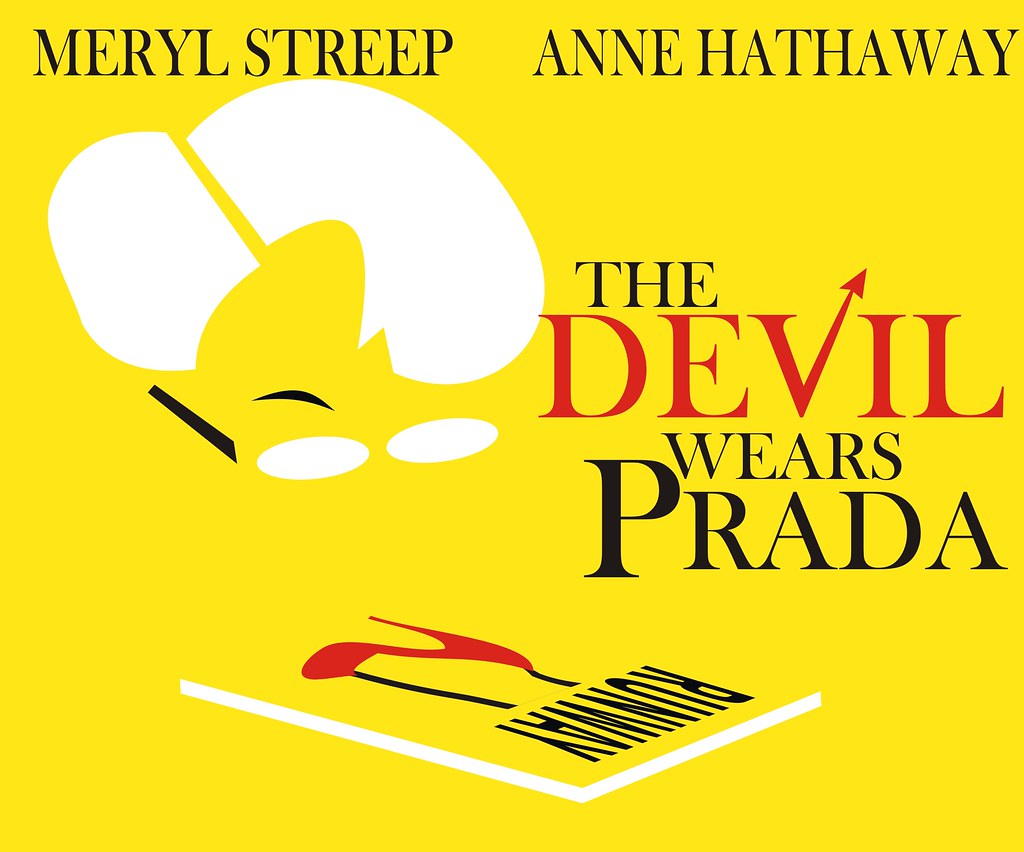
11. **The K-Pop/Prada Award**
Sometimes, an “ideal candidate” vision can go wildly off the rails. Bora K. interviewed at an entertainment company with a famous K-pop producer, sitting in his music studio while he raved about his own genius. Then, he handed her “The Devil Wears Prada” and asked if she could be “exactly like the main character.” Bora, sensibly, said “no” because she found many of the character’s actions “unnecessary.” The kicker? She was hired anyway, and he turned out to be “a terrible boss – exactly like ‘the devil’ in the book!”
This scenario highlights an employer’s profoundly unrealistic and even potentially abusive expectations. Asking a candidate to embody a fictional, famously tyrannical character isn’t a test of ambition; it’s a warning sign of a potentially toxic work environment. It suggests a boss who prioritizes subservience and a cutthroat attitude over genuine skill, collaboration, or a healthy workplace culture. Bora’s experience proves that sometimes, your gut feeling about a red flag is absolutely right, even if you still end up taking the job.
This award-winning story serves as a vivid reminder that while enthusiasm for a company’s vision is great, you need to be wary when that vision includes becoming a fictional villain. It’s a critical lesson in recognizing when a role might demand you to compromise your values or sanity. Sometimes, accepting a job with glaring red flags can lead to exactly the “terrible boss” scenario you instinctively tried to avoid.
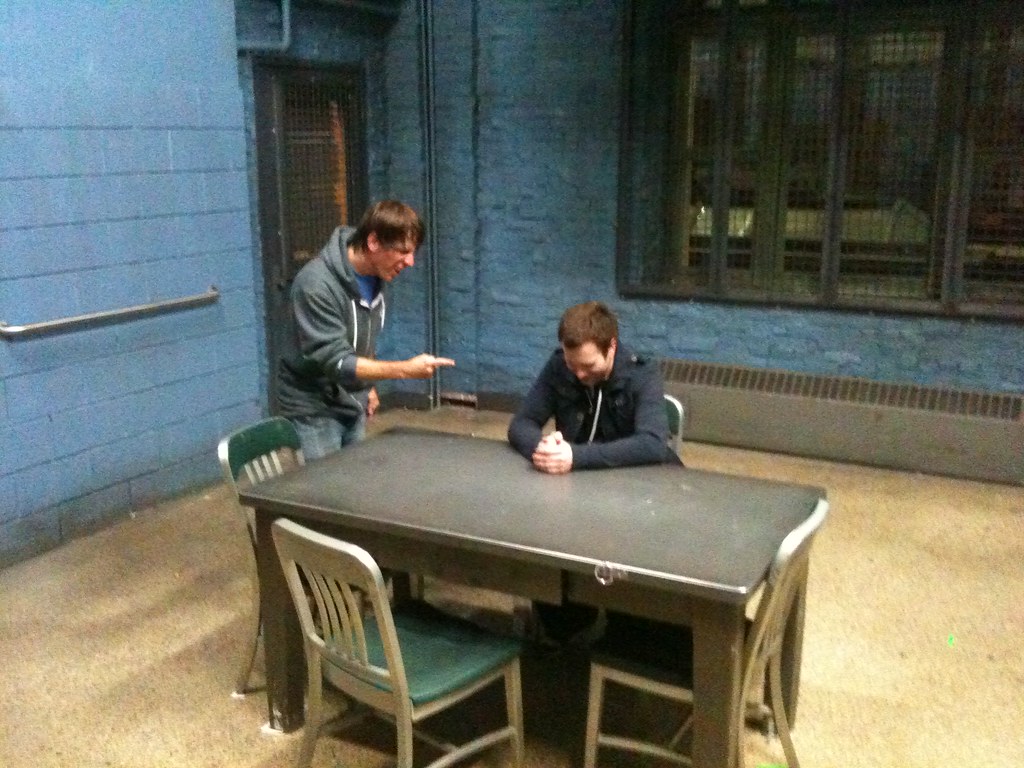
12. **The Interrogation Room Award**
Job interviews are inherently nerve-wracking, but some environments take it to a whole new level. Robert V. applied for an internship at an embassy in Athens and was led into “a dark room with no windows where the only light came from a table lamp.” He sat at a table while the interviewer stood over him. If the setting wasn’t eerie enough, when she learned he spent part of his childhood in Ukraine, she asked him, “whether I had any knowledge of Ukrainian child trafficking rings.”
This isn’t just an uncomfortable interview; it’s a scene straight out of a psychological thriller. The setting itself is designed to intimidate and disorient, creating an immediate power imbalance. And the question? It’s not only wildly inappropriate and irrelevant to an internship but deeply disturbing, hinting at an employer who might be involved in or comfortable with extremely sensitive and possibly dangerous topics in an unprofessional manner.
Robert’s experience is a chilling reminder that your personal safety and comfort should always come first. An interview should be a professional exchange, not an interrogation. If the environment or questions make you feel unsafe, violated, or deeply uncomfortable, it’s a clear signal that this is not a place where you want to spend your working hours, no matter the job title.
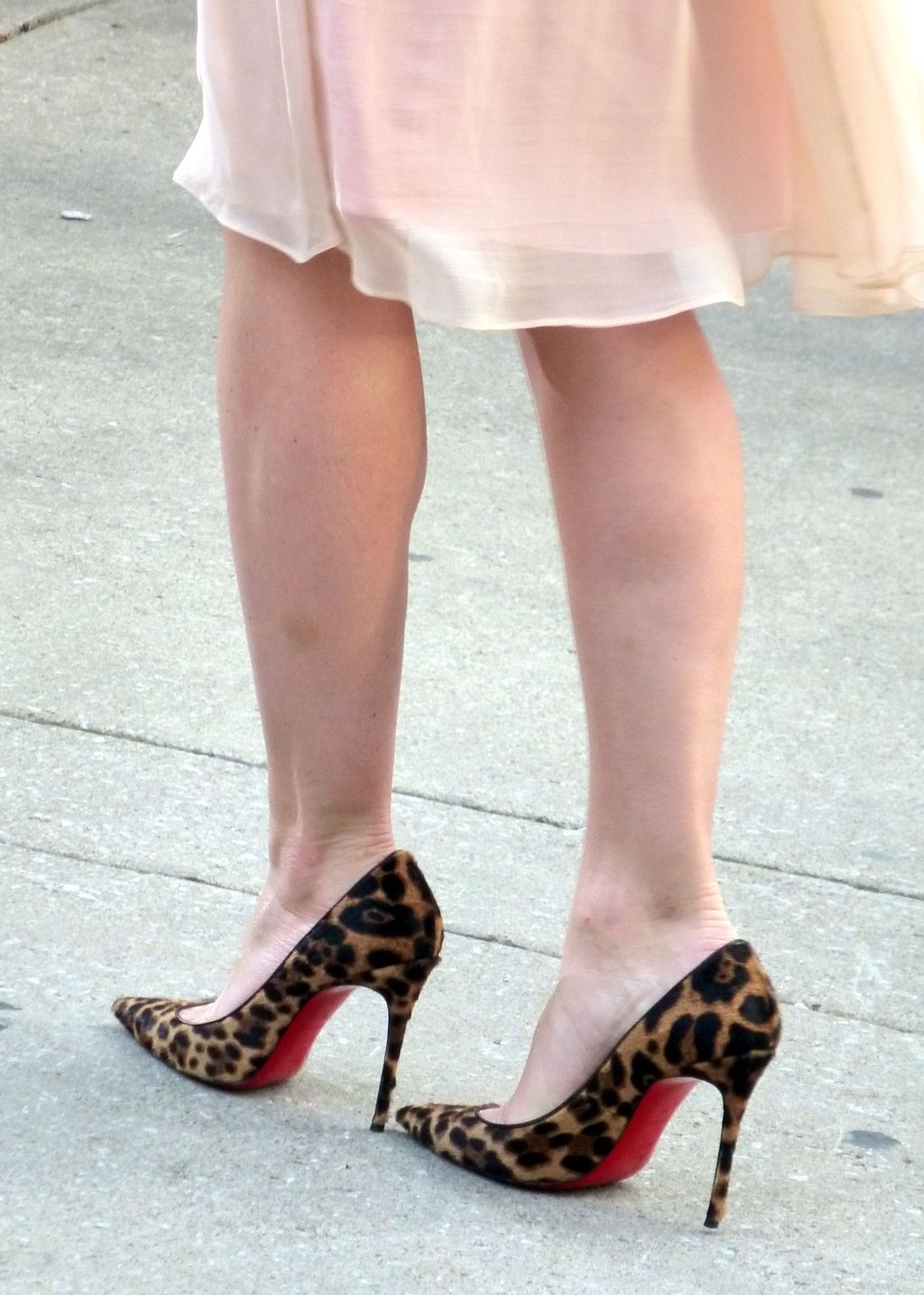
13. **The Leopard Heels Award**
Sometimes, the “scam” factor is evident even before you sit down for the interview, if you’re paying attention. Panos R. responded to a dubiously named organization advertising a vaguely scripted job. The immediate red flag? A very attractive-sounding female called, promising an interview and “potentially offer you a job,” which instantly sounded “fishy.” A quick Google search confirmed his suspicions: it was a scam, promising huge bonuses and private plane rides, but essentially forcing people into door-to-door freelance selling. Despite this, Panos went for “the experience and the giggles.”
The office itself was a spectacle: receptionists in leopard heels, interviewers in “laminated suits,” and other interviewees showing up in sweatpants with their girlfriends. Panos was taken to the “Future Leaders Room,” which was a dingy conference desk adorned with posters of Johnny Depp and Angelina Jolie. He was called a couple of hours later, but wisely never picked up.
Panos’s story is a masterclass in spotting and navigating a scam. From the initial vague ad and overly enthusiastic promises to the bizarre office attire and absurd “Future Leaders Room,” every detail screamed “get out.” While he went for the laugh, his experience serves as a crucial warning: if it sounds too good to be true, or just plain weird, it probably is. Trust your instincts, do your research, and don’t be swayed by shiny promises that lack substance.

14. **The Really Scammy Scam Award**
Sometimes, desperation can lead us down some sketchy paths. Carolyn M., a 19-year-old college student, was applying for marketing internships and, in a moment of desperation, sent out numerous applications without enough research. She got an interview email from a “marketing company” that had no website, no online reviews, and no clear indication of what they actually did. The job description was equally vague, asking for “a passion for marketing, high energy, and an entrepreneurial spirit.” Despite her gut feeling, she held out hope and went.
The interview was in a basement office on a busy road, with about 15 other young people in the lobby. An “overly cheery woman” hyped up the group, while people were ushered in and out of five-minute interviews. Her turn came, and a man asked cliché questions like “Why are manhole covers round?” and “How many golf balls can fit in a school bus?” He pitched the role as an opportunity to “be my own boss” and “work my own hours,” entirely commission-based. The actual job? Going door-to-door selling phone plan contracts. This was clearly “no marketing internship.” Carolyn left and blocked their number. She later learned the company held “creepy pep rallies” where they chanted bizarre sales acronyms, acting “a bit like a cult.
Carolyn’s harrowing experience is a cautionary tale for anyone feeling the pressure to land a job. It illustrates how vague job descriptions, lack of online presence, high-pressure group interviews, and incredibly short one-on-one sessions are all screaming red flags. The shift from a “marketing internship” to door-to-door sales, combined with the “cult-like” culture, epitomizes a deceptive and exploitative scam designed to lure in vulnerable individuals.
The stories shared here, from zodiac signs to bathrobe interviews and outright scams, paint a vivid picture of the wild west that some job interviews can be. While it’s easy to chuckle at the absurdity, these experiences serve as powerful reminders: your instincts are valuable, your time is precious, and your self-respect is non-negotiable. Don’t be afraid to walk away from a job that screams “red flag.” Because honestly, finding a workplace that values you, treats you with respect, and doesn’t ask you to become a fictional villain is a win in itself. May your next interview be nothing short of professional and respectful, and your coffee cup always be returned!




